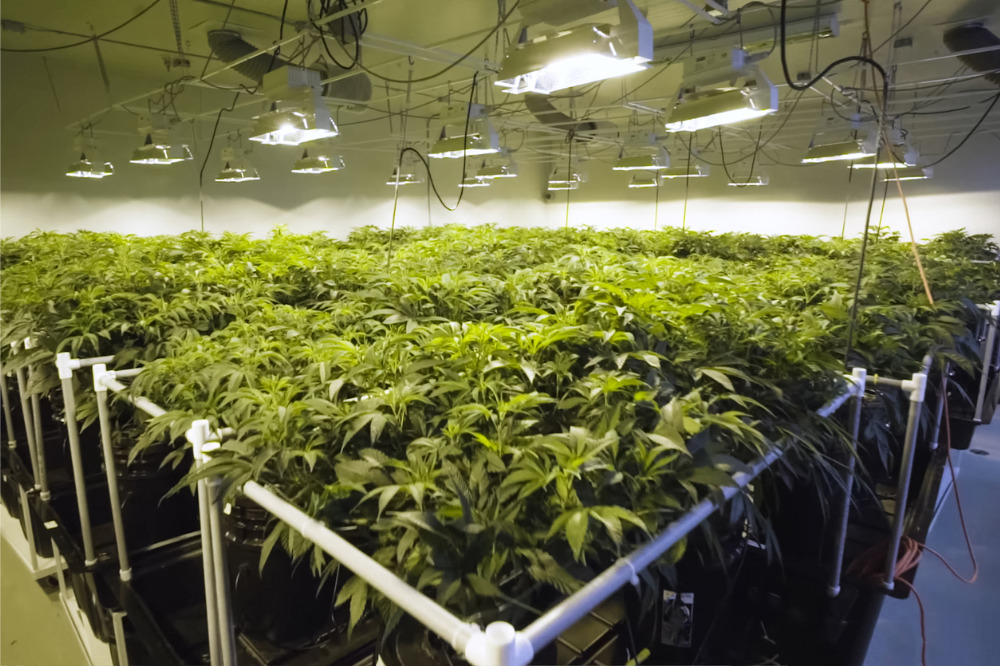CEO and director of history-making pot REIT explains why firm is uniquely positioned to benefit from growing tailwinds

Over the past year, SPACs have come into their own as an efficient vehicle for companies looking to quickly access the public investment space for capital. One reason for that has been the relatively straightforward and faster experience that a SPAC IPO offers compared to the traditional IPO – which was one of the main drivers behind the decision to launch the Subversive Real Estate Acquisition REIT LP on the NEO Exchange in January.
“We knew we wanted to create a scalable platform and a publicly-traded vehicle affords the most efficient cost of capital to real estate investment vehicles,” Richard Acosta, the REIT’s CEO and director, told Wealth Professional. “We also wanted to do this quickly and … within weeks we had raised $225M for Subversive REIT’s SPAC IPO with a mandate to invest in U.S. cannabis real estate.”
That decision, Acosta said, also made his team and thesis stand out considerably from competitors. Usually, one would expect a SPAC to invest in at least one company, but the Subversive REIT’s mandate is to pursue many real estate assets, which “reduces investor risk through diversification and a streamlined G&A/overhead structure.” In effect, Subversive REIT was able to distinguish itself as the first SPAC to convert into a REIT structure.
Acosta said the aim had always been to acquire individual real estate assets, but up until the preliminary prospectus, they were able to attract investors on the strength of their investment management team and target thesis. The fact that the SPAC IPO raised north of $200 million in just a few weeks, he said, was a vote of confidence in what the team could accomplish once Subversive de-SPACed.
“We have one of the best teams out there in cannabis, real estate, SPACs and institutional investing,” Acosta said. In 2018, he founded a private company, Inception REIT, that focused on cannabis real estate; his initial real-estate experience before that included stints at CFO at SBE Entertainment and director at Colony Capital. The chairman of Subversive REIT LP, Michael Auerbach, had also previously orchestrated a $575-million capital raise for a cannabis SPAC, which Acosta said was the largest amount ever raised for a SPAC focused on the industry, as well as the largest SPAC IPO in Canadian history.
Another piece in Subversive’s complement of competitive advantages is the ability to view cannabis real estate through the lens of traditional real-estate investing. By going beyond cannabis-focused metrics and considering prospective assets in terms of location, competition in the area, and alternative uses to the properties, to name some, Acosta said the team is better able to gauge and mitigate risk, leading to more win-win deals.
“We have a history of investing in the industry, we have the capital to make significant acquisitions, and we have the know-how for the cross-section of cannabis and real estate,” he said.
Drawing from his analysis of the North American marijuana space over the past one and a half years, Acosta identified three central pieces that underpin what he views as a promising opportunity. First, there’s the fact that every player across the supply chain – cultivation, manufacturing, testing, distribution and retail – must secure appropriately “zoned” real estate in order to get the appropriate cannabis license. “We like to say that our assets are the backbone of the industry,” he said.
In the context of the COVID-19 pandemic, cannabis businesses in most pot-friendly states were deemed essential businesses. In effect, they were spared from the cascade of shutdowns that drowned many other industries and has left countless enterprises starving for cash. That’s been a home run for the industry, though Acosta admitted to having some doubt in the early innings.
“When COVID-19 hit earlier in the year, we hit the pause button for sure. I think most smart investors did,” he said. “We needed to understand what would happen to cannabis businesses, the markets and our own lives. … It wasn’t long after we announced the IPO that we had great companies reaching out to us to make deals, but we need to have a clearer picture of what the future might look like, and we are glad we gave ourselves that time before ramping up our efforts again.”
A third tailwind is the fact that the cannabis industry is growing at a CAGR of around 30% each – faster than nearly other industry in the world, according to Acosta – which puts the industry to reach a market value of $30 billion by 2030, by Subversive’s estimations.
“That’s without federal legalization. Most states don’t have adult-use cannabis legalization,” Acosta said. “The democratic presidential nominees both support decriminalization and Kamala Harris co-sponsored one of the farthest-reaching cannabis legalization bills. With a blue wave, this is possible … Once that happens, the floodgates will open.”
The opened-up floodgates, in his mind, will be much more profound than the rush of hot money that defined pot investing in 2018 and 2019. Banks will look to lend money to pot operators, allowing them to finally hold checking accounts and get away from cash-only transactions. National legalization will unlock interstate commerce, paving the way for companies to create more efficient systems: operators could grow their supply in the conducive climes of California, then have it shipped to stores across the U.S. and as far as the east coast.
A new wave of cannabis industry expansion could also provide much-needed job growth and tax dollars to local and state governments, Acosta said. Assuming federal legalization comes with criminal justice reform, it could allow people incarcerated solely for marijuana possession to be set free and have their records expunged. That could, in turn, pave the way for a new contingent of workers and taxpayers to support the broader economy.
The cannabis retail space, he added, is quickly catching up to mainstream retail. In jurisdictions where pot is legal, platform companies akin to GrubHub are allowing consumers to order cannabis from online markets and have it delivered right to their door. Brick-and-mortar retailers, he said, are developing their online shopping portals to keep pace.
Research on the plant is also set to grow, Acosta added, noting how new cannabinoids are being discovered for an array of novel uses.
“A few months ago, Professor Raphael Mechoulam, known as the ‘father of cannabis research,’ discovered a synthesized cannabidiolic acid methyl ester molecule called EPM301,” he said. “This new, patented cannabinoid compound is more potent than THC and CBD and could bridge the gap between plant and pharmaceutical. … These types of discoveries are happening monthly, and to be honest, I think there is no other industry that is as exciting as cannabis right now.”



